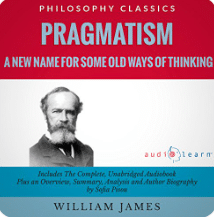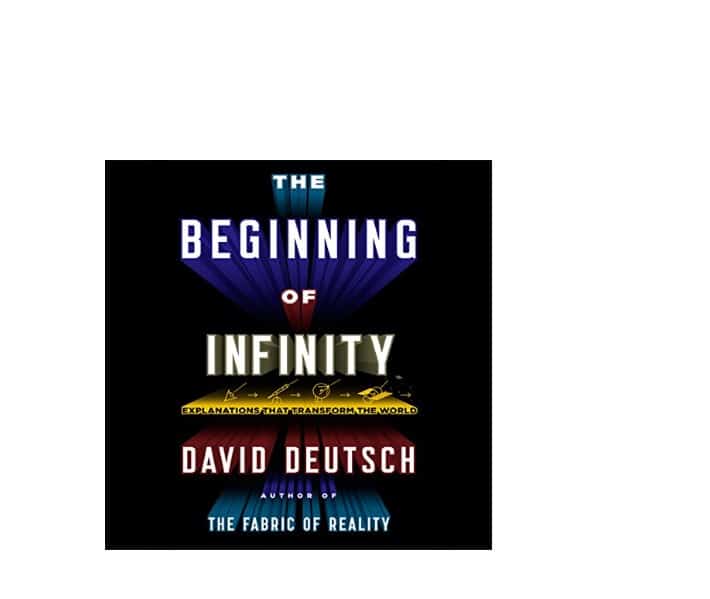A New Name for Some Old Ways of Thinking
William James
William James (January 11, 1842 – August 26, 1910) was an American philosopher, historian, and psychologist and the first educator to offer a psychology course in the United States. James is considered a leading thinker of the late 19th century, one of the most influential philosophers of the United States, and the “Father of American psychology” (Wikipedia). James had an MD degree from Harvard Medical School.
This book is a series of eight lectures from Colombia University between 1906-1907. This particular edition contains lecture summaries and commentary and is available from Audible.com.
Lecture One: The Present Dilemma in Philosophy.
James defines several points,
- Everyone has their philosophy and trusts in it.
- Many are curious to hear deep things discussed even though they may not understand much.
- We seek objectivity while subjectivity exists everywhere.
- We all exhibit a heavy confirmation bias.
- A person should see things in their unique way.
- Our differences create richness.
- There are two kinds of philosophy: empirical and religious. Some mean is desirable.
Lecture Two: What Pragmatism Means.
Pragmatism resolves disputes by comparing the practical consequences. Find what difference it makes when choosing one side or the other in a dispute. Find a sensible solution, such as cash value.
Lecture Three: Some Metaphysical Problems Pragmatically Considered.
- Any debate establishing a distinction between substance and attribute produces little value.
- The distinction between materialism and theism is an idle debate. Is what we observe God made or the results of natural laws?
- Darwin shows that many designs (we would call them mutations) fail, bringing into question the designer’s competence.
Lecture Four: The One and the Many.
James asks us to choose between the unity of things forming one or thinking of individual things as detached or separate. Seeing unity leads to peace. Missing it results in chaos. When man, seeing his unity with all others, dispels with evil.
(For me, this lecture lacks continuity with the overall theme.)
Lecture Five: Good Pragmatists Turn Their Faces Toward Experience.
This was a lecture in support of empiricism and common sense.
Lecture Six: Pragmatism’s Conception of Truth.
Truth is the property of specific ideas that agree with reality.
Truth can be validated, corroborated, and verified. False cannot. An idea becomes true by events. Truth emerges from facts. However, James also asks us to consider that the truth has to do with practical interests and personal reasons.
Here is where pragmatism becomes interesting. James asks us to overlook a common mistake in formal logic of affirming the consequent and accept the statement, “To say that something is useful because it is true is equivalent to saying that something is true because it is useful.”
Lecture Seven: Pragmatism and Humanism.
Truth is an abstraction from facts. However, as history proceeds, rights, wrongs, words, idioms, and beliefs add to our facts, giving our truths an element of being artificial.
Reality is what truth must take account of. However, different accounts exist of the perceived reality. All descriptions of reality contain the human element. We cannot leave out this human element.
Lecture Eight: Pragmatism and Religion.
Consider what it would look like to apply pragmatism to the idea of the salvation of the world. There are three possible views,
- The view of the optimist that salvation is a certainty.
- The view that salvation is possible. Some of the conditions for salvation exist. The more supporting conditions and the fewer preventing conditions, the greater the probability of salvation.
- The view of the pessimist that salvation is impossible.
The views that salvation is inevitable or impossible have little utility. For that matter, these views are detrimental. The view that salvation is not unavoidable or impossible is helpful. It means that effort and sacrifice must be made to earn salvation. The view of salvation as possible fits nicely as the pinnacle of our hierarchy of values. (See Jordan Peterson, The Logos at Ephesus). This is the pragmatic view together with its utility.
Before commenting, please review our privacy policy: www.findnewcontent.com/privacy/



